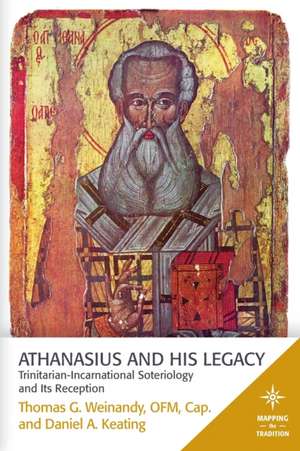Athanasius and His Legacy: Trinitarian-Incarnational Soteriology and Its Reception: Mapping the Tradition
Autor Thomas G. Weinandy, Daniel A. Keatingen Limba Engleză Paperback – 31 oct 2017
Preț: 191.84 lei
Nou
Puncte Express: 288
Preț estimativ în valută:
36.71€ • 38.62$ • 30.39£
36.71€ • 38.62$ • 30.39£
Carte tipărită la comandă
Livrare economică 14-28 ianuarie 25
Preluare comenzi: 021 569.72.76
Specificații
ISBN-13: 9781506406282
ISBN-10: 1506406289
Pagini: 144
Dimensiuni: 150 x 226 x 10 mm
Greutate: 0.25 kg
Editura: 1517 MEDIA
Colecția Mapping the Tradition
Seria Mapping the Tradition
ISBN-10: 1506406289
Pagini: 144
Dimensiuni: 150 x 226 x 10 mm
Greutate: 0.25 kg
Editura: 1517 MEDIA
Colecția Mapping the Tradition
Seria Mapping the Tradition
Notă biografică
Thomas G. Weinandy, OFM, Cap., has spent most of his Capuchin priestly life as a teacher. He has taught at various Catholic universities in the United States and for twelve years lectured in history and doctrine within the Faculty of Theology at the University of Oxford. Upon his return to the States, he was executive director for the Secretariat of Doctrine at the United States Conference of Catholic Bishops.












